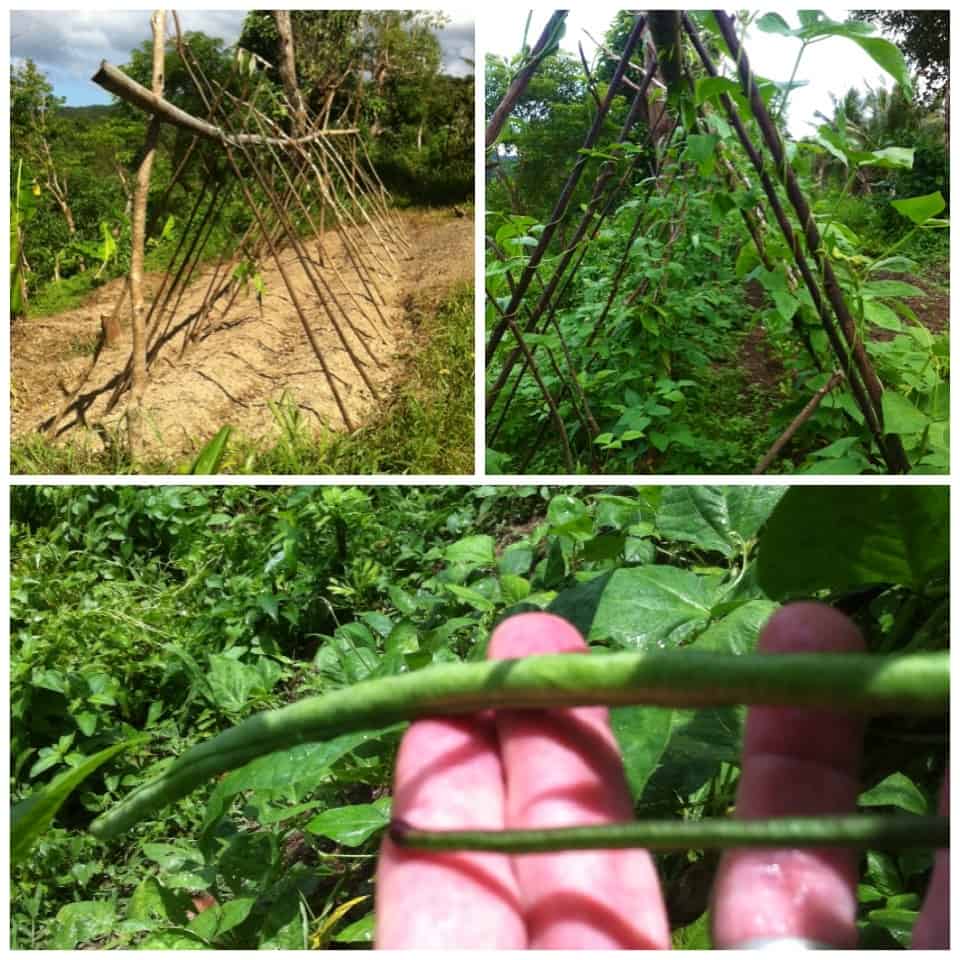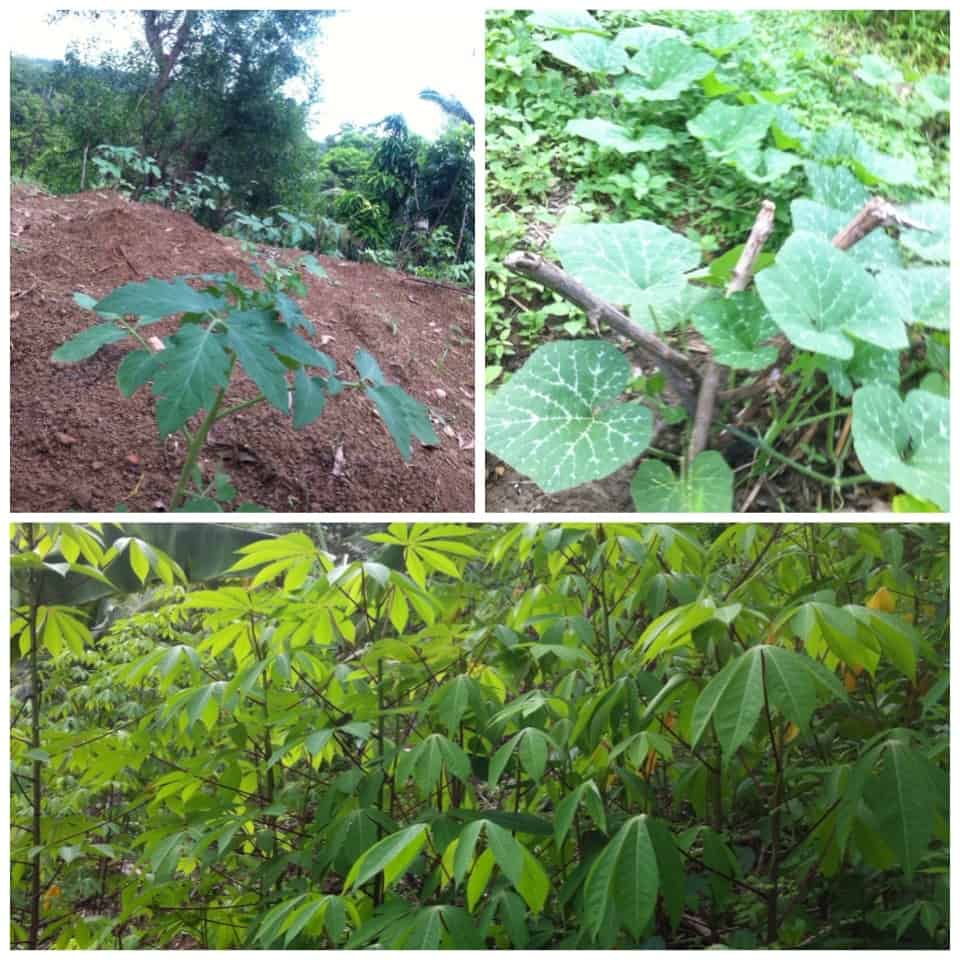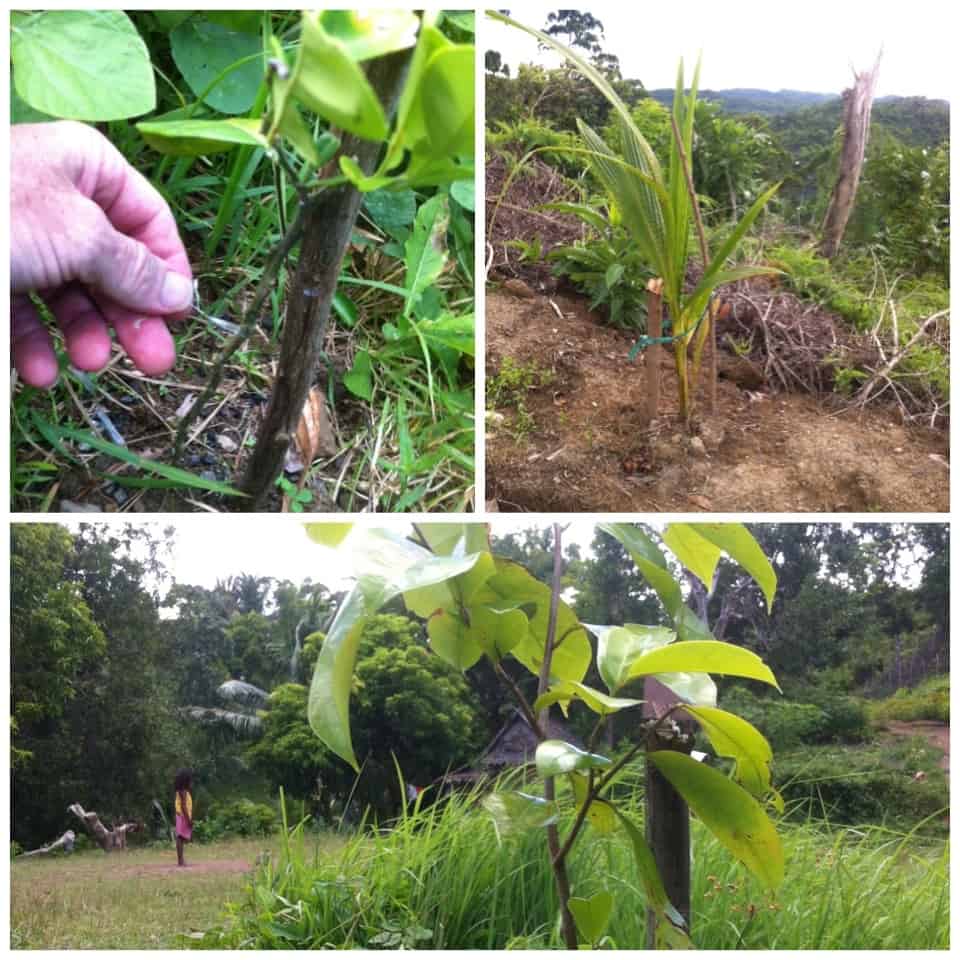Last Updated on October 25, 2024 by Ellen
The gardens are growing. Some plants producing. Crops coming in. Others are struggling. A few have died. It’s normal. It’s nature.
It’s the current situation here in Malay, Aklan, Panay, Philippines, where we are waiting for the world to reopen so we can resume our early-retired wandering.
In the meantime, we are helping and hoping to make a difference in the daily lives of our native neighbors.
Chief among them is the indigenous Ati tribe – a disadvantaged group by any standard. It is their gardens that we are sponsoring with the help of our overseas donors.

A couple months ago we started with seeds and small salaries to establish some organized agriculture in two different Ati villages.
A snapshot of the before and after is seen above. The big bongga beans; thus far, the best success. They were being harvested and eaten after about six weeks.
Other vegetables are maturing, too. Tended daily by the Ati who live in the hills near our temporary Philippine home. Eggplant, okra, casaba, radish, peppers, bok choy; all are being cultivated with varying success.
The plan was to start small-scale farming by families; to involve women and children and older folks; and to incentivize the self-help effort with a few pesos — call it creative charity – our favorite kind.
We’ve exhausted the budget for this project by paying out $50 per week for the last two months — in addition to the seeds and equipment like fencing and tools and fertilizer. The funds are divided by the Ati themselves between those who do the work. Of course, they also reap the reward of whatever they can produce.
Indeed, I love to walk past a former patch of weeds and now see edibles. Vegetable gardening seems like a no-brainer in this time of economic strife and hunger in the developing world. I only feel bad we waited so long to encourage it.

The pics above show tomatoes and casaba vines and camoté (a vigorous, potato-like root crop). As with the beans, different people and plots get different production. And be assured, the Ati grow camoté and banana and papaya always and everywhere.
We have had some weather issues (intense rains and flash floods), and it appears the soil is not especially rich in ‘Ati land’ — but whatever is harvested is a bonus when jobs and incomes and food supplies remain pressured due to the continuing coronavirus crisis here in the Philippines.
In fact, the loss of tourism revenues and likely slow recovery – for the Philippines and the Ati – is what inspired our garden growing project and others.
One related effort which we started at this same time was the planting of fruit tree saplings: over 400 in total. As with the gardens, we devised another ‘pay-to-plant’ strategy where all Ati tribe members could earn some pesos by participating.
Ironically, the fruit trees are intended as ‘replacements’ for the many larger hardwood trees the Ati themselves have culled on their lands and processed for charcoal — one of their few income sources throughout the pandemic.

I’m pleased to report that since the community planting events in July, hundreds of the small fruit trees can now be found thriving all around the Ati hills. (Thus far, I have only counted four that did not survive.)
Of course, any edible produce from most of them is years away. But we did splurge on some grafted specimens… and I have personally been removing the ‘graft tape’ and pruning these faster-producing, dwarf varieties – as shown in the first pic above. Some of the grafted trees could bear fruit after just a few growing seasons.
Meanwhile, the current vegetable harvest will continue. Then hopefully new crop cycles started – no matter if the Earth Vagabonds have moved on from the Philippines.
Moreover, as with the gardens, the monies paid to Ati families through our tree ‘transport and plant’ scheme were much needed and appreciated. Further, we hope our interest and involvement in both programs will inspire a continuing sense of self-reliance amongst the Ati — including in our current ‘fishing initiative’. News of developments on that project to be posted on this blog in the coming week.
As always, be thankful and generous (like our supporters), happy trails & more beer.
Life is NOW!
Thanks for reading, “Growing greens update.”


